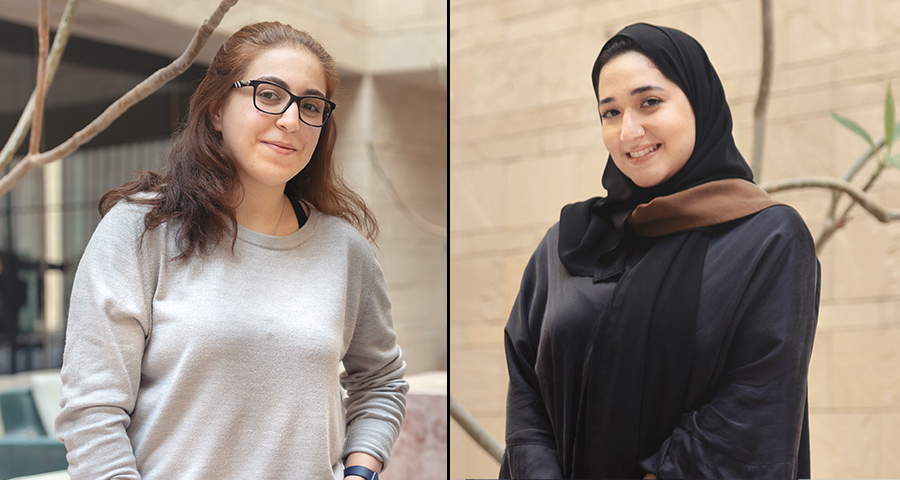
World Water Day at CMU-Q: Student researchers discuss global impact of water research
Editor’s note: March 22 is World Water Day, when the world’s attention turns to the integral role water plays in health, agriculture, environmental sustainability and economic well-being. Carnegie Mellon University in Qatar (CMU-Q), a Qatar Foundation partner university, contributes to water research in several ways, including collaborations with Qatar Environment and Energy Research Institute (QEERI).
To celebrate World Water Day, we spoke with two student researchers who have been working on one of these collaborative projects.
Sara Fakhroo and Shahad Younis are contributing to a project that could have wide-reaching applications for marine ecosystems, sustainable oil and gas operations, and public health.
The project looks at ways to avoid wide and indiscriminate use of biocides to prevent corrosion in water pipes used in offshore drilling. As oil and natural gas are extracted, water is piped in as a coolant. However, over time, bacteria in the pipes create a biofilm that corrodes the pipes and can lead to contaminants leeching into the seawater. To prevent this problem, oil and gas companies use biocides to prevent bacteria growth.
Younis notes that adding biocides to the water has a cascade effect: “Worldwide, we have a huge problem with antibiotic resistance. If we can identify the type of bacteria that are actually present in the pipes, and target them specifically, we could prevent unnecessarily biocides to the water.”
Fakhroo sees wider implications for research: “This project is specifically in oil and gas, but this same type of approach is also is being done in other areas, like sewage infrastructure. In Qatar, we depend on treated seawater for our drinking water and for agriculture, so a small discovery in one area can improve upon quality of life in many different areas.”
The biological sciences students, who are both graduating in May 2021, are advised by Annette Vincent, associate teaching professor of biological sciences and a researcher in the field of water quality.
Vincent believes research is a vehicle for students to learn the wider impact of scientific discovery: “One of our goals in the Biological Sciences Program at CMU-Q is to train scientists who are global citizens. I think water-related research is a great avenue for students to see the bigger picture: even though this project looks at one small question, the answers could lead to changes in many, many areas of how water is processed.”
The larger project is funded by Qatar National Research Fund (QNRF) and is a collaboration between scientists at QEERI and CMU-Q. This collaborative nature of the research has resonated with the students.
Younis remarked: “The other day, Professor Vincent said she believes in free and open science. I’ve thought a lot about this. I think if we share the research we are doing, it is available for others to build on it, and together we create a foundation of knowledge.”
